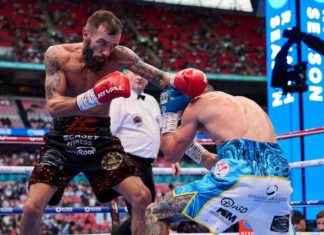Boosters are already recommended for anyone 16 years or older. Federal regulators on Monday ruled that they are also appropriate for 12- and 15-year olds, once enough time has passed between their last dose.
The move comes as classes resume after the holidays. But it’s not the end. The Centers for Disease Control and Prevention will have to decide whether boosters should be recommended for younger teens. The CDC director Dr. Rochelle Walensky is expected to make a decision later in the week.
According to the FDA, anyone 12 years old or older who is eligible for a Pfizer booster may get it as soon as five months after their last dose.
In a statement, Dr. Peter Marks, FDA vaccine chief, stated that a booster would “may help provide greater protection against both the Delta and Omicron variants,” particularly since omicron is “slightly less resistant” to vaccine-induced antibodies that can help fight infection.
The FDA stated that real-world data from Israel showed that more than 6,300 children aged 12 to 15 years received a booster at least five months following their first Pfizer dose. There were no safety concerns.
The FDA also stated that additional data from Israel did not show any problems in giving Pfizer boosters to anyone who is eligible a month earlier than the six-month policy.
Vaccines offer strong protection against any type of COVID-19-related serious illness. Health authorities urge everyone to receive a booster dose in order to avoid milder breakthrough infections caused by the highly contagious Omicron mutant.
COVID-19 is more common in children than it is for adults. However, child hospitalizations are on the rise during the omicron waves — many of them unvaccinated.
Boston College pediatrician and global health expert Dr. Philip Landrigan welcomed the FDA’s decision, but stressed the need to give the unvaccinated their first shot.
He stated in an email that “it is among unvaccinated persons that most severe illness and death due to COVID will take place in the coming weeks.” “Thousands of lives could be saved by people getting vaccinated.”
Pfizer’s vaccine and BioNTech’s partner are the only options for American children at any age. According to the CDC, 13.5 million children aged 12-17 years have received two Pfizer shots. This is just under half of that number.
The booster age limit is a question mark for families who want to protect their children as much as possible.
In December, boosters were available for older teens (16- and 17-year olds). Original vaccinations were opened to the 12-15-year-olds in May. This means that the first to get vaccinated in spring are likely to be millions of people, and they have been in line for as long as six months.
Even younger children will be able to take kid-sized doses of 5- to 11-year olds. Experts recommend that healthy children remain protected for at least a few days after the second dose. The FDA said Monday that children younger than 12 years old with severely compromised immune systems will be permitted to take a third dose up until 28 days after the first. This is the same timing as recommended for immune-compromised teenagers and adults.
Pfizer is currently studying the vaccine in smaller doses for children under 5.







